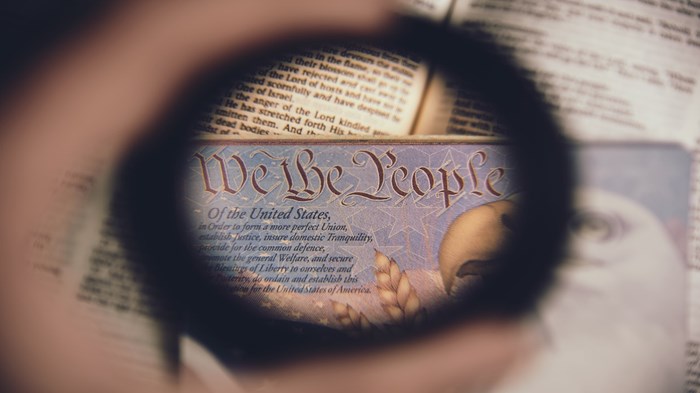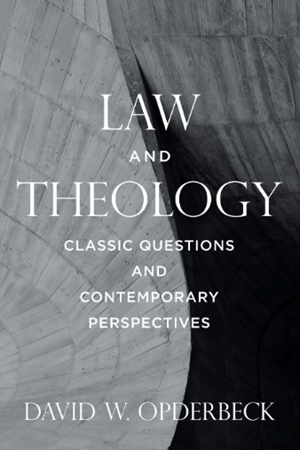God's Law, Natural Law, Positive Law -- by a Lawyer Theologian

David Opderbeck is both a lawyer and a theologian, a professor of law and a church theologian. He cares about a theology of public law, here defined often as “positive” (human discerned) law. His book is called Law and Theology, and it’s a good one.
Christians believe in the revelation of God in Christ and in the scriptures as God’s Word to God’s people. We can ask how positive law relates to natural law and how they relate to God’s Word, then, as “God’s law.” This statement by Opderbeck clarifies the whole chapter for me:
“Positive law, therefore, is always removed at some distance from natural law. Another way to say this is that natural law is ideal, while positive law is a pragmatic approximation of the ideal oriented toward broader ends that exceed the positive law itself. Not every principle derived fromnatural law can be, or should be, encoded into positive law” (117).
It makes me wonder, then, if for him kingdom of God and natural law are nearly identical. Is kingdom of God, like natural law, the ideal and thus what God made nature to be? What Opderbeck says here resonates with William Webb’s (and Gordon Oeste’s) redemptive movement hermeneutic, now applied to the ongoing articulation of positive law.
Is this statement of Opderbeck’s the rationale, then, for progressivism’s activism to form laws that are better, for laws that are shaped by a society as they see it?
He begins with natural law as something God grants to creation and all humans as a gift through the sheer act of creation.
Natural law is embedded in creation. Some things are inherently right and good, and some things are inherently wrong and harmful. This is part of creation’s existence as divine gift. Creation is a gracious donation of being by God, who is the ground of being.
When that happens, “positive” law is the attempt to participate and articulate natural law.
Legitimate positive law participates in the natural law, which participates in God as an aspect of creation. Legitimate positive law restrains evil, mirrors God’s good purposes for creatioin, guides Christians and non-Christians alike (at least through “seeds of the Word”), and embodies the kingdom of God through liberation from oppression.

Opderbeck knows I would ask questions about positive law embodying kingdom of God, but that view is already on the table in quotation from p. 117 above. In light of that 117 quotation, the next point is required in that positive law is an approximation of natural law.
Positive law is nevertheless contingent and limited. Not all the goods of the natural law can be embodied in the positive law in any given moment in history. The positive law refers to absolute truth but is never itself a question of absolute truth. Consideration of what can be achieved through the positive law requires the virtue of wisdom.
Consent, this is a big idea, and takes us to Montesquieu’s contention that law itself as human construction diverged from a Constantinian society (if I may use that) where God’s law and the Bible were ruling. It took things away, too, then from the divine right of kings.
Legitimate positive law refers to the consent of the governed. Legal rules without some essential justification in the consent of the governed will lack force and cogency.
Opderbeck also knows and at times disagrees (bristles might be a good term at times) at the more comprehensive anabaptist approach to church and society, and therefore approach to law and thus force.
Positive law is backed by force. A theology of positive law must embrace a just peacemaking ethic that recognizes the legitimacy of some use of governmental. Force as constrainedby the rule of law. Such an ethic could be “pacifist” in the sense of eschewing inter-state warfare as a political tool, but itmust recognize the spiritual and moral legitimacy of the police power, or else there can be no rule of law.
This was for me an excellent chapter that puts so much together in how law is discussed today.
Jesus Creed is a part of CT's
Blog Forum. Support the work of CT.
Subscribe and get one year free.
The views of the blogger do not necessarily reflect those of Christianity Today.




















